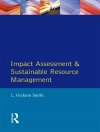Geographies of Embodiment provides a critical discussion of the literatures on the body and embodiment, and humanism and post-humanism, and develops arguments about ‘otherness’ and ‘encounter’ which have become key ideas in urban studies, and studies of the city. It situates these arguments in a wider political context, looking at power-relations through case studies at urban, national and transnational scales.
These arguments are situated across disciplinary boundaries, at the borderline between between philosophy and social science that is associated to critical phenomenology, and reaches across Human Geography, Sociology, Philosophy, Anthropology, Cultural Studies and Urban Studies.
Mục lục
Introduction
Chapter 1. Figuring the ground
a. What is critical phenomenology
b. Critical phenomenology as a ‘New Humanism’
Chapter 2. Bodies and embodiment
a. Thinking the body
b. Embodied Identities
c. The temporality and spatiality of the body (including case ‘(re)scaling identities)
d. Affectivity and emotions
Chapter 3. Encountering the Other
a. The concept of encounter
b. Different modes of encounter
c. Collective planned encounters
d. Encounters with authorities
e. Banal everyday encounters
Chapter 4. Urban Perspectives
a. The Flesh of the urban
b. The urban as a world of strangers
c. From invisibility to visibility: Opening of a purpose-built mosque in Copenhagen
Chapter 5: Political Perspectives
a. Everyday politics
b. Everyday nationalism
e. Politics of hospitality
Giới thiệu về tác giả
Lasse Koefoed is Associate Professor at the Department of People and Technology, Roskilde University, Denmark, and is well known within Critical Geography. His research interests relate to urban geographies, cities and ethnic minorities, nation and nationalism, postcolonialism, cross-cultural encounters and everyday life.












